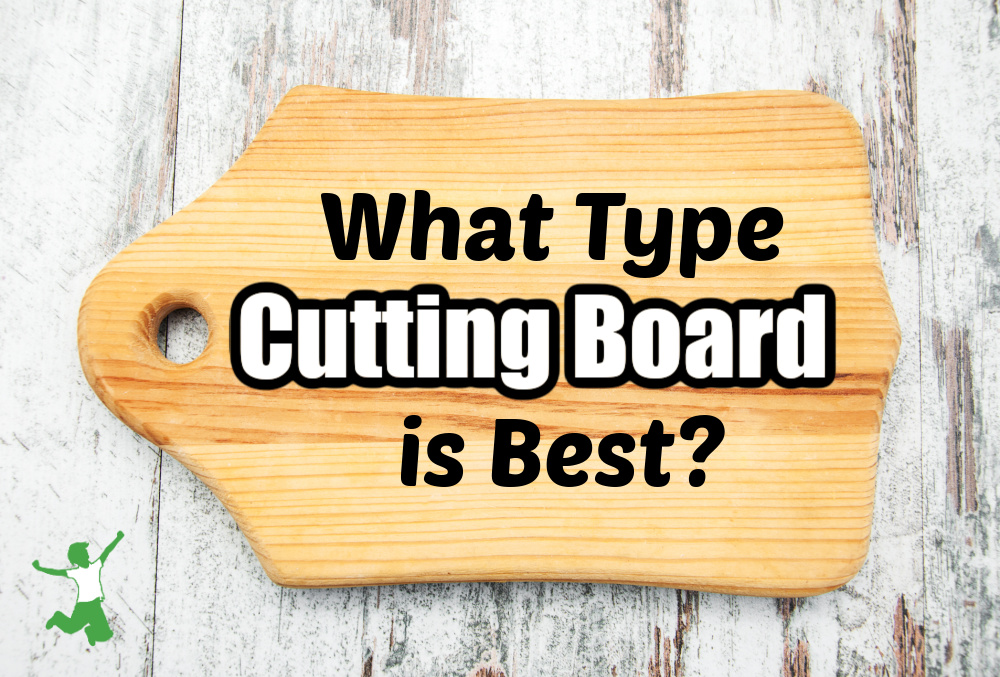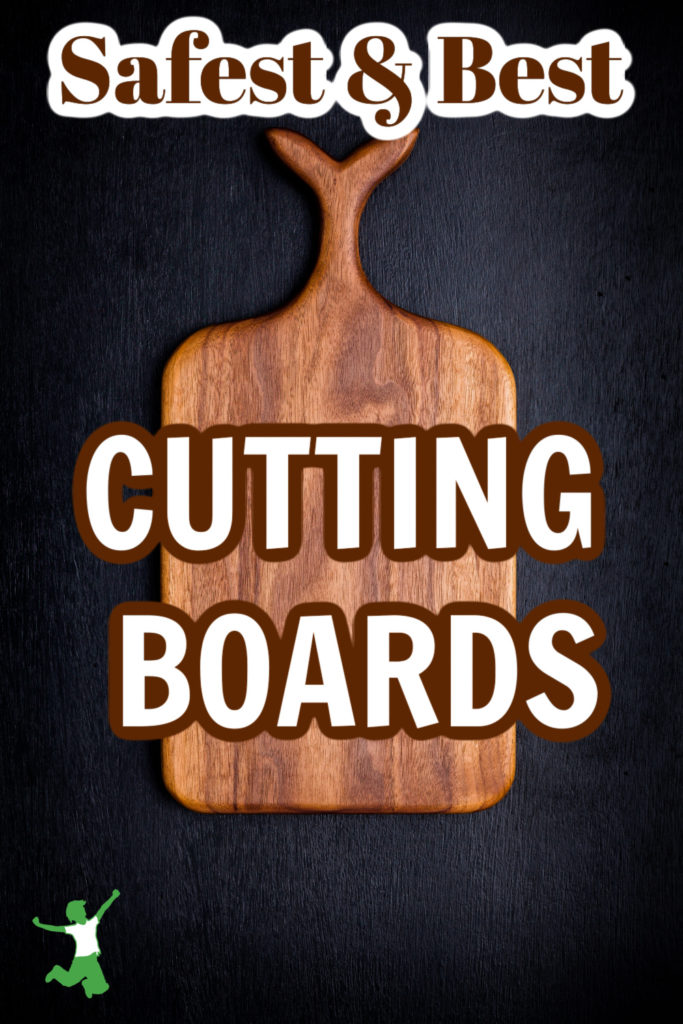Comparison of the various types of cutting boards and whether plastic is truly safer and better than wood as claimed.
Cutting boards of various shapes and sizes are very important tools in any home where meals are freshly prepared.
As for the best cutting boards, however, which material is truly optimal for food prep safety?
Are plastic or wood cutting boards preferable?
The answer might surprise you!
Restaurants Consider Plastic Cutting Boards Safer
Plastic has long been considered superior to wood.
For this reason, people have generally preferred this type of material in the name of food safety.
The prevailing wisdom is that plastic is less hospitable to bacteria, and therefore, would be safer.
Most restaurants use plastic for this reason. It is considered more sanitary by the industry because it is easier to wash and does not absorb food juices. (1)
But…is this really true?
Research Compares Plastic vs Wood
Research simply does not bear this out in practice, however.
As it turns out, wood is much less likely to harbor pathogenic bacteria than plastic!
Wood by far makes for the safest cutting boards to use in your home!
The research conducted by food microbiologists at the College of Agricultural and Life Sciences at the University of Wisconsin-Madison discovered that wood somehow eliminates bacteria but plastic does not. (2)
The manner in which the bacteria perished on the wood but not on the plastic is not known.
The scientists found that 3 minutes after contaminating a wooden cutting board, 99.9% of the pathogenic bacteria had died, while none of the bacteria died on plastic.
In addition, bacteria held at room temperature overnight on a plastic cutting board increased in number.
Surprisingly, the researchers could not find any bacteria present on wood treated in exactly the same manner!
So it seems that the prevailing “wisdom” that plastic is safer than wood is not true after all.
Wooden cutting boards are the best and safest choice after all.
Why is Plastic Unsafe?
I was happy to discover this information as I have always intuitively preferred wood over plastic cutting boards.
For one thing, wood is more stable than plastic during chopping. In my experience, you are far less likely to experience an injury when chopping meat and veggies on wood.
In addition, I have always thought that little bits of plastic or chemicals must be somehow released into the food from the repeated exposure to a sharp knife.
I have not seen evidence of this in the research. It just seemed to be common sense. Hence, I have stayed away from plastic and have always stuck with wood.
In particular, I have steered clear of plastic cutting boards with special antimicrobial surfaces.
Any product that boasts that it is antimicrobial screams “hormone-disrupting chemicals”, so I avoid them like the plague.
Best Type of Wood
For the best cutting boards, it is best to stick with old-fashioned wood block.
Do not use cheaper boards made with bonded wood pieces. The glue holding the board together can be toxic.
In addition, avoid “pre-oiled” wood boards. Oil them yourself at home with unrefined coconut or olive oil.
My choice is unfinished organic bamboo butcher block (like this one) as it is a sustainable, fast-growing natural resource that is manufactured in a safe manner as well.
Are Probiotics the Reason Wood is Best?
As an aside, I have a theory about why pathogenic bacteria are unable to survive on wood boards but instead grow exponentially on plastic.
Lactobacilli is a beneficial bacteria on the surface of all natural things. This includes our own skin. This beneficial microbe kills off pathogens that are within its vicinity.
This is why grassfed raw milk is safer than pasteurized. The naturally occurring probiotics “crowd out” any pathogens that might get into it.
Heat-treated foods just get contaminated if the same thing were to happen.
Perhaps this is the same method for how pathogens on wood cutting boards are destroyed within 3 minutes, yet this same thing does not happen on plastic?
(1) Why Don’t Restaurants Use Wooden Cutting Boards
(2) Wood Cutting Boards, Not Plastic, Are Safer for Food Prep










I like using hot soapy water and letting it dry. Treating with olive oil helps keep it from cracking. I’ve used lemon juice when I feel like it’s needed. Hate the small plastic board that came with a set of knives I bought once. Check Etsy for some really nice wood ones. I’ve seen shops that have a wood business and then make boards out of their leftovers.
I never use soap on wooden utensils and boards. I rinse, dry and coat with virgin coconut oil (VCO). The medium chain fatty acids in the VCO are hostile to pathogens in addition to being an excellent wood treatment. It seems to me that soap is way overrated for wood and cast iron.
Ciao, Pavil
Pavil, thanks for that advice. Will do.
I like using hot soapy water and letting it dry. Treating with olive oil helps keep it from cracking. I’ve used lemon juice when I feel like it’s needed. Hate the small plastic board that came with a set of knives I bought once.
Thank you for the info!
lol, can you explain to me why bamboo is more sustainable than wood? That’s just propaganda to justify shutting down our logging industry and turn this country into a third world type so we’ll buy into the new world order. A shame that we just follow rather than think for ourselves. . . .
Bamboo grows really fast while hardwood trees that are cut down would take many years to regrow. My neighbor has bamboo and it grows like a weed. There is no doubt it is a better material to use than chopping down hundred year old trees! I am sorry it harms the logging industry but cutting down trees is not the way to go environmentally speaking!
Bamboo is more sustainable because it grows up very quickly. So if you chop it down to make something, you can grow it right back up and use it again in a matter of months. Trees do not grow as fast, so when you chop one down, it take a lot longer for it to grow back up to a usable size.
I personally don’t like bamboo cutting boards, I find them to be a slow surface to cut on.
With bamboo boards, what glue holds the small pieces together? Something healthful?
Is Plastic Really Better than Wood for Cutting Boards? http://t.co/MPRLo5s http://bc.vc/TpGmY
Although I own a couple of plastic cutting boards, wood is my preference. I had read about research a few years… http://t.co/D8LlRpq
I have a glass cutting board for my cheese .. it so pretty I don’t generally use it and use my small bamboo one instead.
I have a glass cutting board because it just *feels* safer, plus it is slim and can be lid away easily in my cabinet. 🙂 Wood sure is a lot prettier, though.
we have wood and glass
Actually..let me restate that..if the GOVT makes ANY claim whatsoever on anything..we know it isn’t true.
Sadly that is being more and more true.